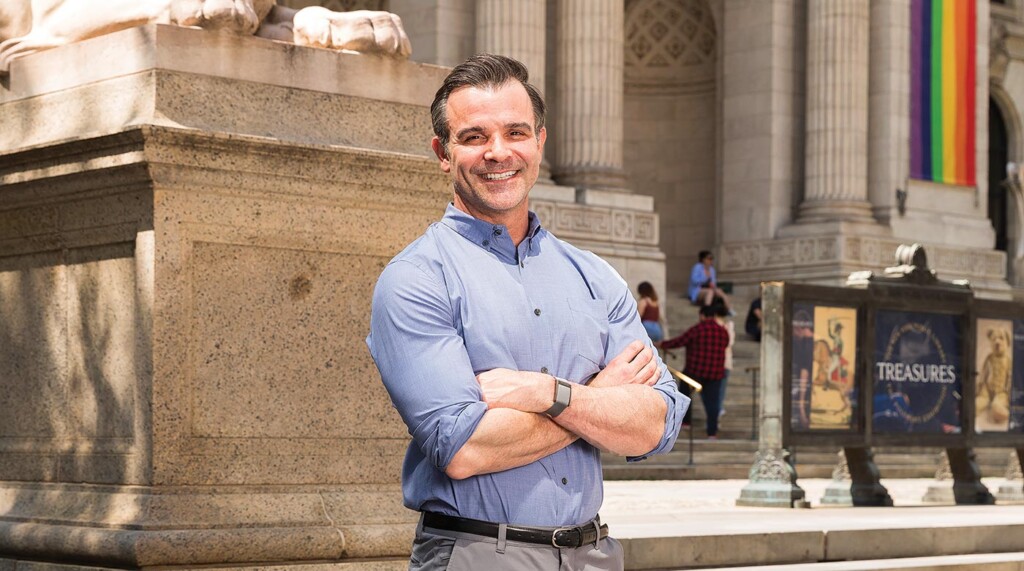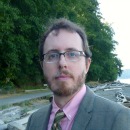Page 144 • (2,470 results in 0.071 seconds)
-
Does Anyone Oppose Charity?I first met Claire in 2003 when she was a student in my course on the history of early Christianity (50-600 C.E.). She was married, a mother, and worked twenty hours a week, in addition to carrying a full load of courses at PLU. One claim I make in the course is that early Christian communities promoted social initiatives that benefitted the hungry, the impoverished, women, children, and the chronically sick and that, from a sociological perspective, these initiatives
-
furthermost tip of the Olympic Peninsula each year to learn about a native tribe he’s researched for decades. It’s designed as an introduction to anthropology, but it offers so much more to those who enroll. Neah Bay is an immersive study away experience just four hours from PLU’s campus. It offers a glimpse into a community that works hard to preserve its culture and sovereignty, teaching tribal members and outsiders alike about the rich history and entrenched values of the Makah people. “It is like the
-
illustrate how existentialism connects to other areas such as religion, psychology and literature. (4) PHIL 248 : Innovation, Ethics, & Society - ES A history of innovation, problem solving, and creativity in the global economy, emphasizing the ethical considerations that arise as a result of new products and initiatives, disruptive technologies, globalization, and cultural change. Draws attention to stages in the innovation process and the importance of teamwork, effective communication, and design. (4
-

a class with Kelleher understand the depth of her commitment to global education and its impact on Lutes throughout the decades. For those who haven’t experienced study away with her, spring 2018 is the time. PLU Alumni Travel Opportunities The Wang Center for Global Education is offering an opportunity for a study away like program to PLU alumni and friends of PLU. Kelleher has spent much of her time in Derry since 2013, authoring the soon-to-be-released “Pioneering Peacebuilder: A History of
-
also of its history as a manipulative strategy that victimizes women specifically. Most simply, gaslighting constitutes the systematic devaluing of a person’s reality in order to convince them that they are insane as a means of exerting control over them. The term itself originated from the screen in the 1944 film Gaslight. Paula, the heroine, is romanced by Gregory who becomes her husband and then proceeds to manipulate her into thinking she is mad so that he can have her committed and steal her
-

, Bannon found himself in the office of history professor Beth Kraig, discussing his plans for the future. He knew he wanted to pursue a career related to social justice and service, and he was considering social work, or perhaps teaching. Kraig asked him a question that changed his life forever.“Have you ever thought about becoming a librarian?” Bannon was surprised by her question. He loved his local library growing up, but had also struggled to manage his dyslexia and long aisles of books didn’t
-
of development, refugees, and gender. I covered a broad range of anthropological history and analyzed its ties to colonialism. I also read some of the most influential ethnographies along with very recent studies that opened up theoretical debates. It was a great continuation of GLST 385 Global Development, and also a huge supplement to my anthropology major. It counted for an upper-level GLST development and social justice concentration course. Selected bibliography: Cheater, A. (ed.) The
-
challenge are crucial to preparation for the study of law. However, pre-law students are also advised to take courses, chosen in consultation with the pre-law advisor, that will help them to identify, develop, and explore perspectives on the character of U.S. law. Courses in U.S. government and history, judicial and legislative processes, research materials and methods, and internships may be particularly useful in this regard. Finally, students with an interest in the law are encouraged to participate
-

in China and East Asia, with a focus on Buddhism. In his research he specializes in the intellectual and institutional history of Chinese Buddhism during the modern period. He has studied Buddhist responses to elements of modernity, such as the discourses surrounding both religion and modern science. His first book, The Science of Chinese Buddhism: Early Twentieth-Century Engagements, was published in 2015 by Columbia University Press. He has published articles in the Chung-Hwa Buddhist Journal
-

years of existence, including one Emmy award, five Emmy nominations and three first-place National Broadcasting Society Awards. Those interested in attending Waste Not are encouraged to RSVP at ml@plu.edu. For more information, visit wastenotdoc.weebly.com. Read Previous University Gallery Celebrates Student Work in Student Exhibition Read Next PLU Debaters Make History at Linfield Tournament LATEST POSTS Meet Professor Junichi Tsuneoka August 20, 2024 Pacific Lutheran University Communication
Do you have any feedback for us? If so, feel free to use our Feedback Form.


